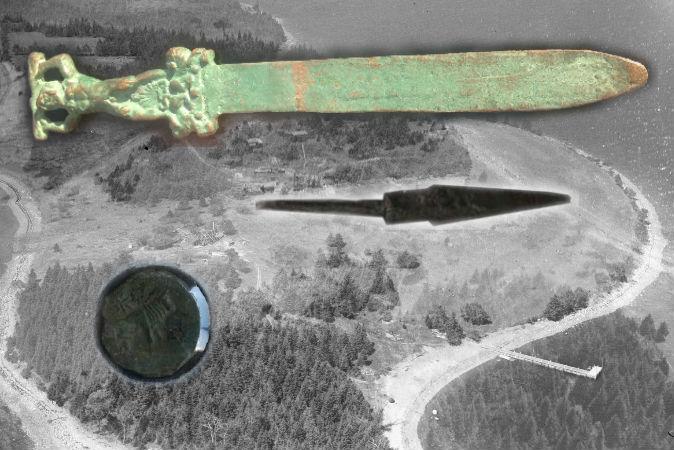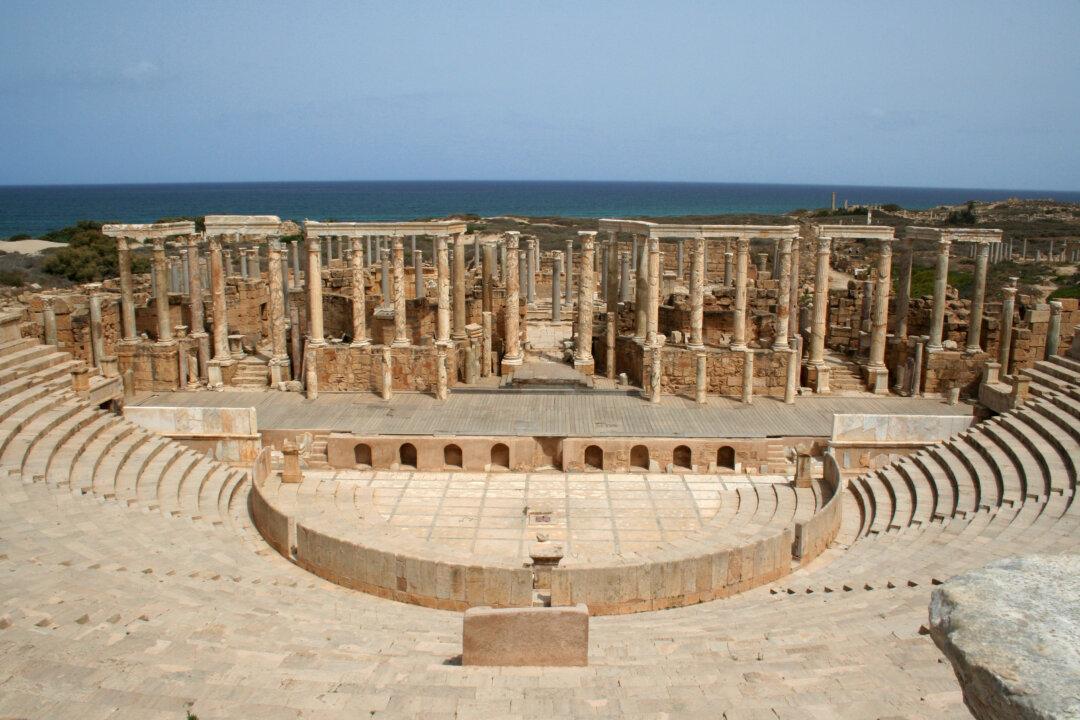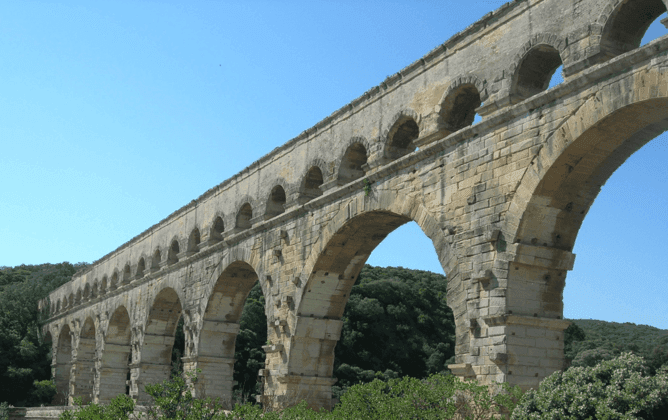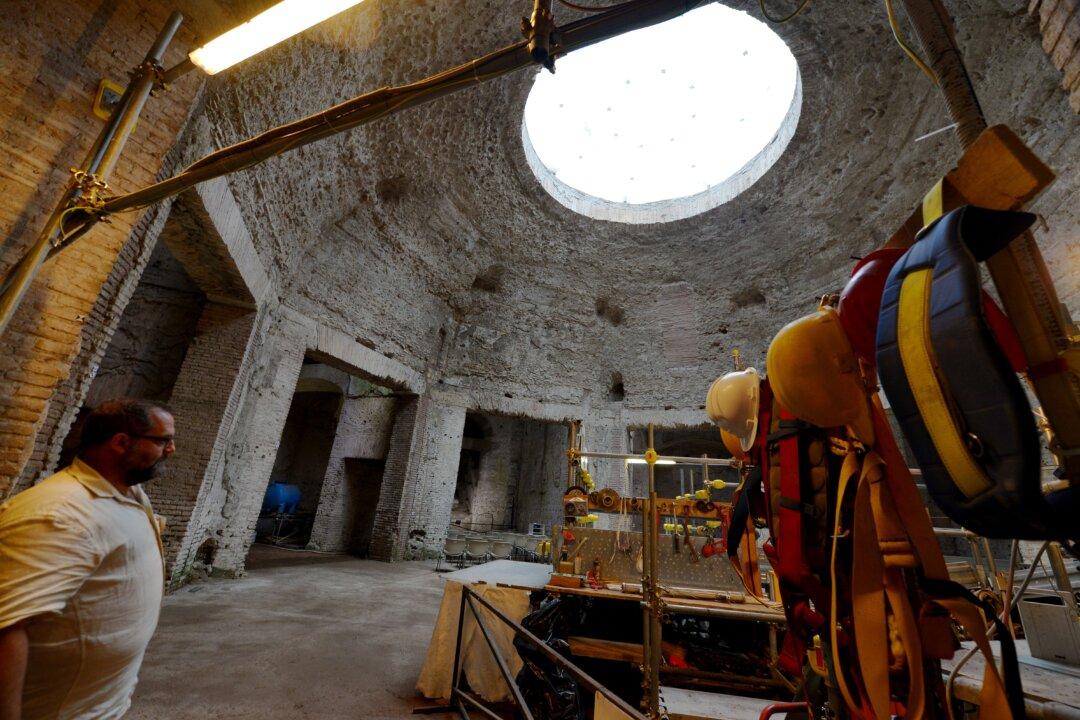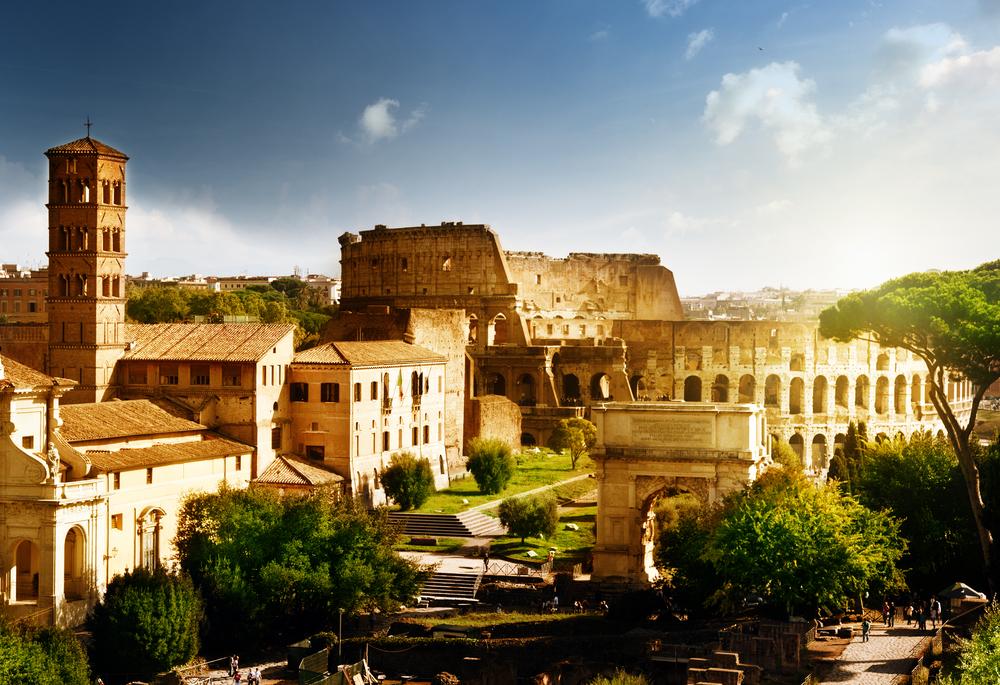Focus
Roman Empire
LATEST
Video: Israeli Divers Find Massive Treasure From a Roman Shipwreck 1,600 Years Ago
Israeli divers discovered a trove of of artifacts, including statues and thousands of coins 1,600 years old, lying on the seabed of the ancient harbor in Cesarean National Park, archaeologists said on May 16.
|
Israeli Divers Find 1,600-Year-Old Roman Treasure (Video)
Some rather interesting ancient discoveries have been made in the waters near Caesarea, Israel over the years. However, none in the last few decades is comparable to a recent find made by two amateur underwater explorers.
|
Home Renovation Leads to Accidental Discovery of a Rare Roman Villa (Video)
Luke Irwin, a rug designer from Wiltshire in the U.K., was trying to install lighting last year when he struck something hard underground.
|
Exclusive: New Evidence Ancient Romans May Have Made It to Oak Island, Canada
What appears to be an ancient Roman sword has been found off the East Coast of Canada, and it is just one of several indications that Romans were there around 200 A.D.
|
Three Ancient Cities to Rival London, Paris and New York
London, Paris and New York are global cities: modern hubs for travel, technology and trade, their names and images echo around the globe, capturing our imaginations with their distinctive histories, famous residents and iconic landmarks.
|
Is Secret to Roman Concrete in Volcanic Rock?
Scientists have discovered concrete-like rock in a dormant volcano in Italy, and say it may explain why the Romans were able to invent the legendary compound used to construct the Pantheon and the Coliseum.
|
Celebrating 2,000 Years of Aventicum
All over Europe, the Romans founded cities which still stand today.
|
What Did the Romans Ever Do for Us? They Left a Water Warning
As all good Monty Python fans know, water technologies feature large in the legacy of benefits left by Roman civilisation. But while aqueducts, sewers and baths retain an obvious presence in the landscape and in the archaeological record, the Romans’ largest and most important water achievement may have been “virtual”.
|
Revolving Dining Room in Emperor Nero’s Luxurious Palace Really Existed
Nero’s 2,000-year-old, luxurious palace has just revealed another surprise - a revolving dining room which once served the illustrious guests of the infamous ruler.
|
Major Historical Setbacks in Science, Technology, and Culture
Throughout history, humanity has suffered serious setbacks to science, progress, and culture. Some have been on a very big scale due to wars, famine, disease. Some setbacks have been on a smaller scale, but may have had just as big of an impact.
|
Roman Empire vs. Society Today—More Similar Than You'd Think
Like today, in Roman times women had rights, criminals had lawyers, and surgery was quite advanced. It’s also true is that sex and violence were everywhere.
|
Video: Israeli Divers Find Massive Treasure From a Roman Shipwreck 1,600 Years Ago
Israeli divers discovered a trove of of artifacts, including statues and thousands of coins 1,600 years old, lying on the seabed of the ancient harbor in Cesarean National Park, archaeologists said on May 16.
|
Israeli Divers Find 1,600-Year-Old Roman Treasure (Video)
Some rather interesting ancient discoveries have been made in the waters near Caesarea, Israel over the years. However, none in the last few decades is comparable to a recent find made by two amateur underwater explorers.
|
Home Renovation Leads to Accidental Discovery of a Rare Roman Villa (Video)
Luke Irwin, a rug designer from Wiltshire in the U.K., was trying to install lighting last year when he struck something hard underground.
|
Exclusive: New Evidence Ancient Romans May Have Made It to Oak Island, Canada
What appears to be an ancient Roman sword has been found off the East Coast of Canada, and it is just one of several indications that Romans were there around 200 A.D.
|
Three Ancient Cities to Rival London, Paris and New York
London, Paris and New York are global cities: modern hubs for travel, technology and trade, their names and images echo around the globe, capturing our imaginations with their distinctive histories, famous residents and iconic landmarks.
|
Is Secret to Roman Concrete in Volcanic Rock?
Scientists have discovered concrete-like rock in a dormant volcano in Italy, and say it may explain why the Romans were able to invent the legendary compound used to construct the Pantheon and the Coliseum.
|
Celebrating 2,000 Years of Aventicum
All over Europe, the Romans founded cities which still stand today.
|
What Did the Romans Ever Do for Us? They Left a Water Warning
As all good Monty Python fans know, water technologies feature large in the legacy of benefits left by Roman civilisation. But while aqueducts, sewers and baths retain an obvious presence in the landscape and in the archaeological record, the Romans’ largest and most important water achievement may have been “virtual”.
|
Revolving Dining Room in Emperor Nero’s Luxurious Palace Really Existed
Nero’s 2,000-year-old, luxurious palace has just revealed another surprise - a revolving dining room which once served the illustrious guests of the infamous ruler.
|
Major Historical Setbacks in Science, Technology, and Culture
Throughout history, humanity has suffered serious setbacks to science, progress, and culture. Some have been on a very big scale due to wars, famine, disease. Some setbacks have been on a smaller scale, but may have had just as big of an impact.
|
Roman Empire vs. Society Today—More Similar Than You'd Think
Like today, in Roman times women had rights, criminals had lawyers, and surgery was quite advanced. It’s also true is that sex and violence were everywhere.
|











